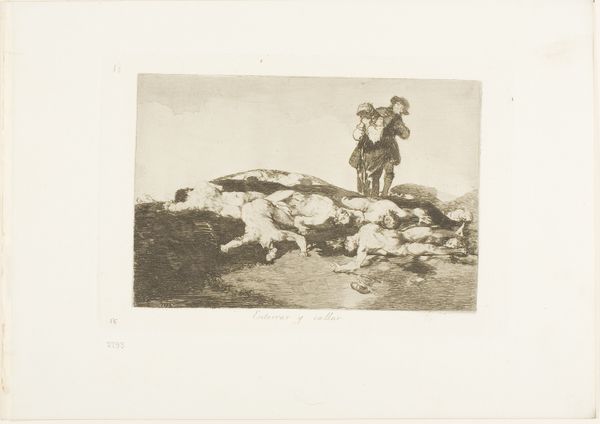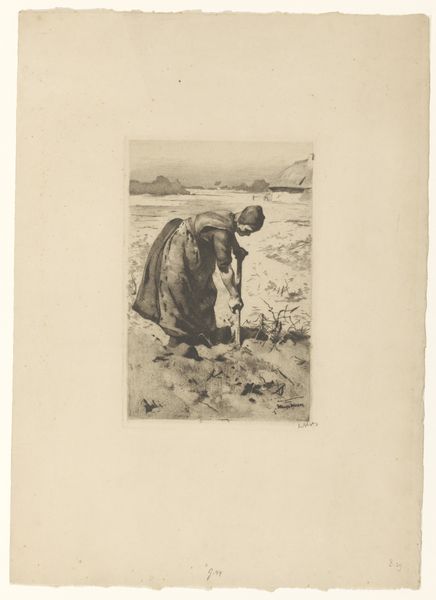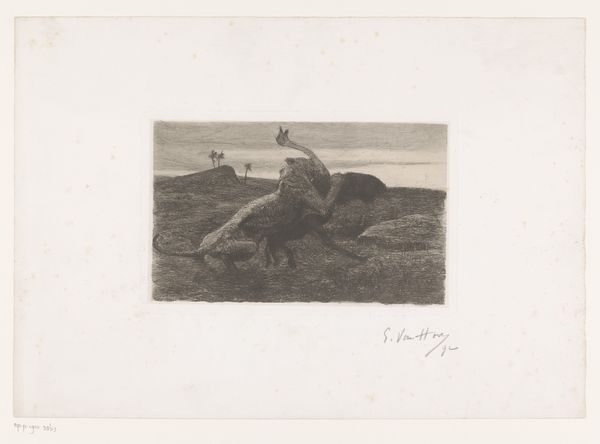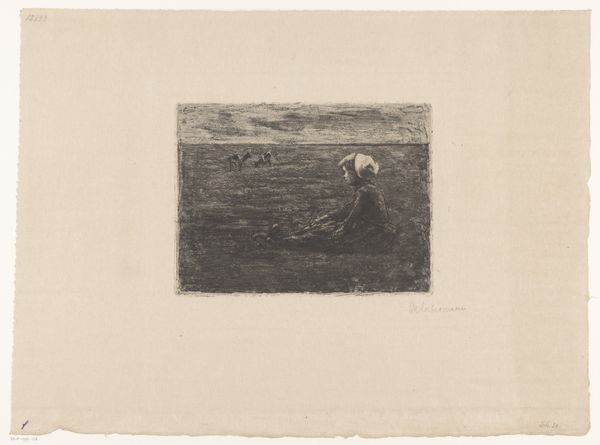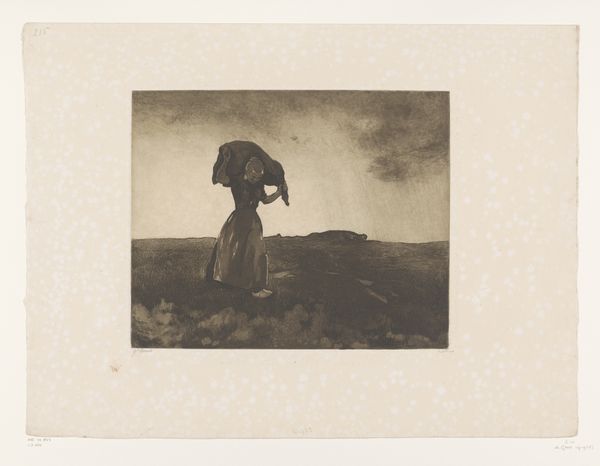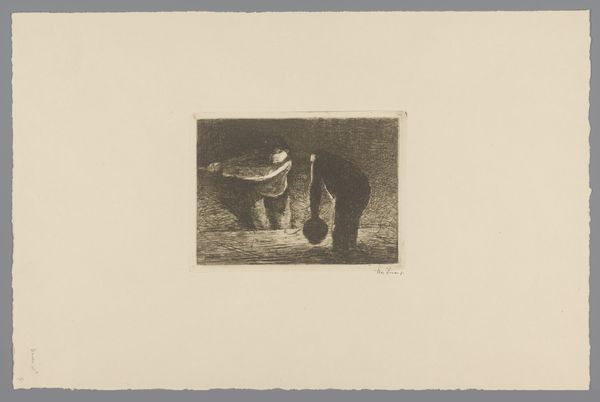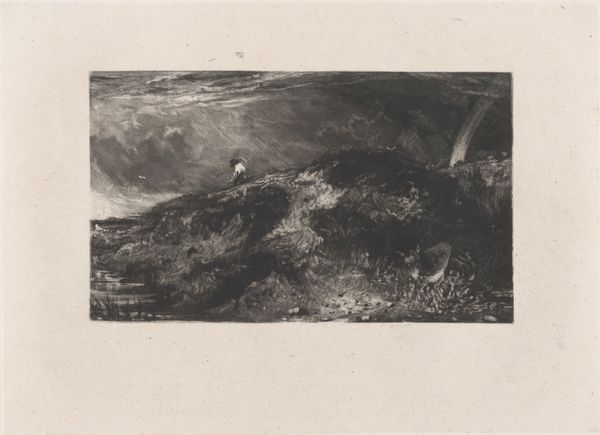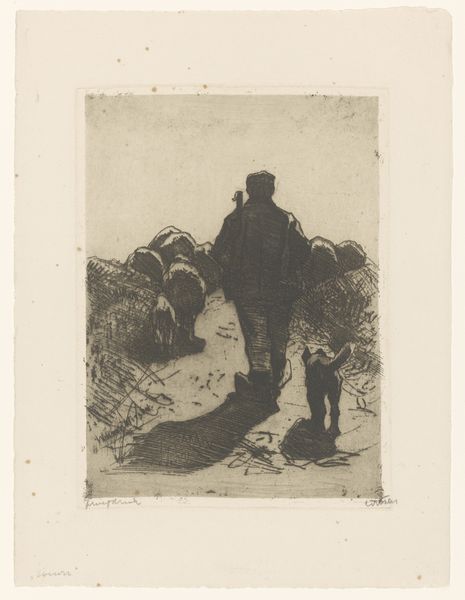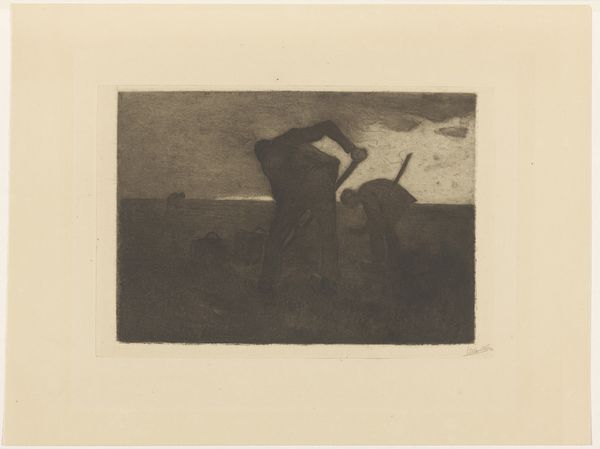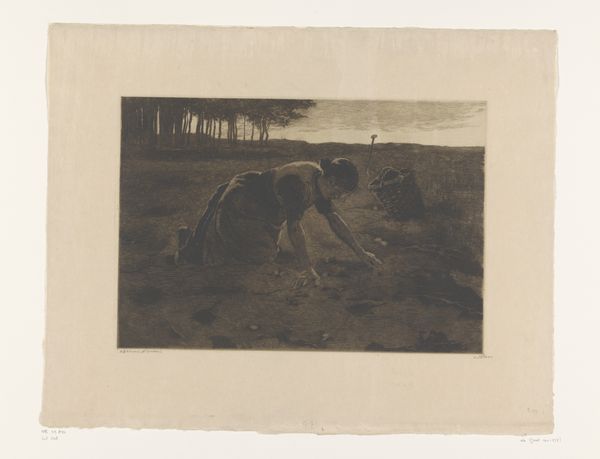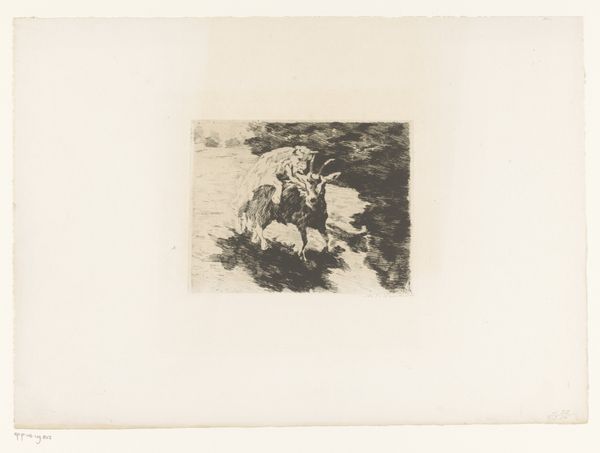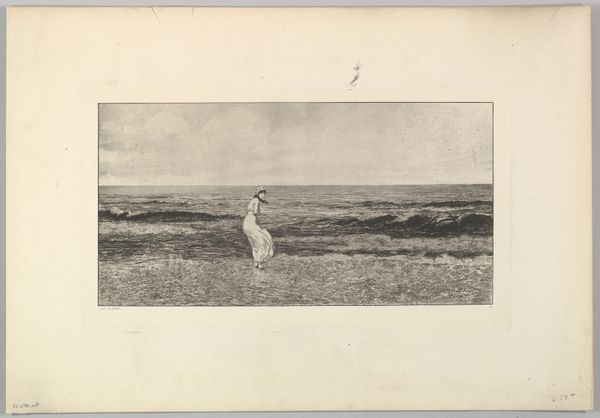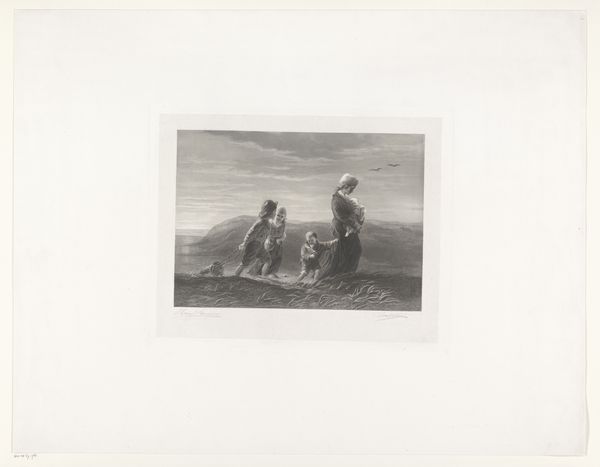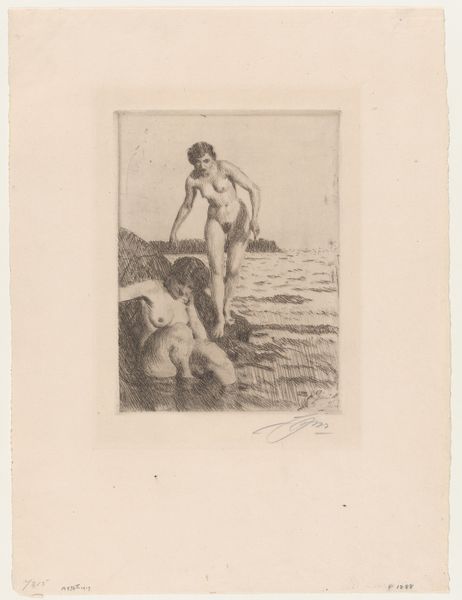
drawing, print, etching, paper, impasto
#
drawing
#
dutch-golden-age
#
ink paper printed
# print
#
etching
#
landscape
#
paper
#
impasto
#
genre-painting
#
realism
Dimensions: height 199 mm, width 296 mm
Copyright: Rijks Museum: Open Domain
Editor: Here we have Willem Witsen's "Kneeling Potato Harvester," created in 1887. It’s an etching, so it’s ink on paper. The scene has this very stark, almost somber feeling to it. What compositional elements stand out to you? Curator: The strategic use of chiaroscuro, the strong contrast between light and dark, creates depth and visual interest. The diagonal line formed by the figure's posture leads the eye into the composition. We see this interplay between texture and tonality throughout. Do you see it as balanced or is it intentionally asymmetrical? Editor: I think the asymmetry really emphasizes the loneliness of the figure in the landscape. Curator: Indeed. Consider the etched lines themselves, varying in thickness and density, to render the texture of the soil, the fabric of her clothes. What about the orientation of these lines in relationship to forms represented in the composition? Editor: It looks like the artist varies the angle of the etching to show highlights and shadows of the dirt. I see what you mean. So the artist is directing our eye and providing shading by alternating this hatching pattern? Curator: Precisely. How do you feel these visual cues shape the subject's mood? Editor: Well, because the landscape's kind of bleak and the lighting's harsh, it lends itself to this feeling of isolation, emphasizing labor over the idyllic. Curator: I concur, and what we discover is Witsen has delivered his emotional expression in the surface treatment and in these formal arrangements. It prompts the viewer to pause. Editor: I never thought of etching this way, I was so caught up in the emotional tone. Thanks! Curator: An alternate viewpoint is just what is necessary to create further appreciation of artwork.
Comments
No comments
Be the first to comment and join the conversation on the ultimate creative platform.
